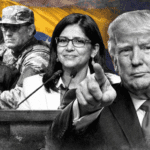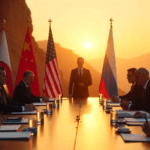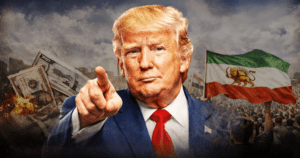Elon Musk, the billionaire entrepreneur and CEO of Tesla and SpaceX, has once again found himself at the center of a global controversy following a gesture he made during President Donald Trump’s inauguration ceremony on January 20, 2025.
The event, held in Washington, D.C., was attended by numerous influential figures, but it was Musk’s actions that quickly stole the spotlight and ignited heated debates worldwide. During the event, Musk, seated prominently alongside other high-profile guests, gestured to place his hand over his heart and extend his arm outward toward the audience.
While the action seemed benign to some, others were quick to draw comparisons to historical gestures associated with authoritarian regimes, particularly the infamous Nazi salute. Musk’s gesture came as Trump addressed the crowd, discussing his plans for “a bold new era of American leadership.”
While Musk did not address the crowd directly, cameras captured his action clearly, and the footage quickly went viral on social media platforms, sparking a wave of speculation.
Musk’s Response and Public Reaction
As speculation mounted, Musk responded to the controversy on X (formerly Twitter), the social media platform he owns.
“The gesture was meant as a simple sign of respect and acknowledgment to the audience,” Musk wrote. “Any other interpretation is baseless and entirely incorrect.” He also defended his presence at the event, stating, “I believe in engaging with all sides of the political spectrum to ensure the future of innovation and progress.” However, Musk’s explanation did little to quell the storm, as critics and supporters alike dissected his actions and motives.
The reaction to Musk’s gesture has been polarized. Critics accused him of signaling support for authoritarian ideologies, particularly given the controversial nature of Trump’s policies during his previous administration. Social media platforms were flooded with hashtags like #MuskSalute and #TeslaBoycott, with many users demanding clarification or an apology.
Conversely, Musk’s supporters defended him, arguing that the gesture was taken out of context. “This is just another example of people overanalyzing everything Elon does,” tweeted one user. Others pointed to Musk’s history of unconventional behavior and public statements, suggesting that the gesture may have been an ill-conceived attempt at humor or symbolism.
Germany’s Sharp Criticism
In Europe, the reaction was particularly strong, with Germany leading the criticism. The country’s historical sensitivities regarding any gestures or symbols associated with Nazism made the incident especially contentious.
Major German newspapers, including Der Spiegel and Frankfurter Allgemeine Zeitung, published editorials condemning Musk’s actions as “deeply inappropriate” and “shockingly tone-deaf.” Chancellor Greta Weiss, addressing reporters in Berlin, expressed her concern. “Regardless of intent, such actions carry heavy connotations, particularly in Germany, where we are committed to combating the resurgence of far-right ideologies,” she stated.
The incident has also sparked discussions in Germany’s Bundestag, where some members called for reevaluating Tesla’s operations in the country. Tesla’s Gigafactory in Brandenburg, a critical hub for its European production, has been a point of pride for Musk, but the backlash has led to calls for increased scrutiny of the company’s activities.
Meanwhile, activists and historians in Germany have used the controversy as an opportunity to emphasize the importance of educating global figures about the weight of historical symbols and gestures. “This should serve as a reminder that cultural awareness is not optional for leaders with global influence,” said Dr. Klaus Reinhardt, a historian specializing in World War II studies.
Impact on Tesla and SpaceX
The controversy has also had significant implications for Musk’s companies, Tesla and SpaceX. Tesla’s stock price saw a sharp dip in the days following the inauguration, losing nearly 8% of its value as investors reacted to the backlash. Many analysts attributed the decline to fears that Musk’s actions could alienate environmentally conscious consumers, who form a substantial portion of Tesla’s customer base. Tesla’s Gigafactory in Brandenburg has been a key asset in the company’s European expansion, but local protests against the factory have intensified in the wake of the controversy. Critics in Germany are now questioning whether Musk’s actions align with the ethical standards the country strives to uphold.
SpaceX, too, faced criticism, with several NASA officials reportedly expressing concerns about Musk’s ability to separate his political views from his leadership of the company. The backlash could potentially jeopardize SpaceX’s contracts with government agencies, although no official statements have been made. As the dust begins to settle, it remains unclear how the controversy will impact Musk’s long-term reputation. Whether the backlash from Germany and other countries will translate into tangible consequences for Tesla and SpaceX remains to be seen.
What is certain, however, is that Musk’s every move will be scrutinized more closely than ever before.
















